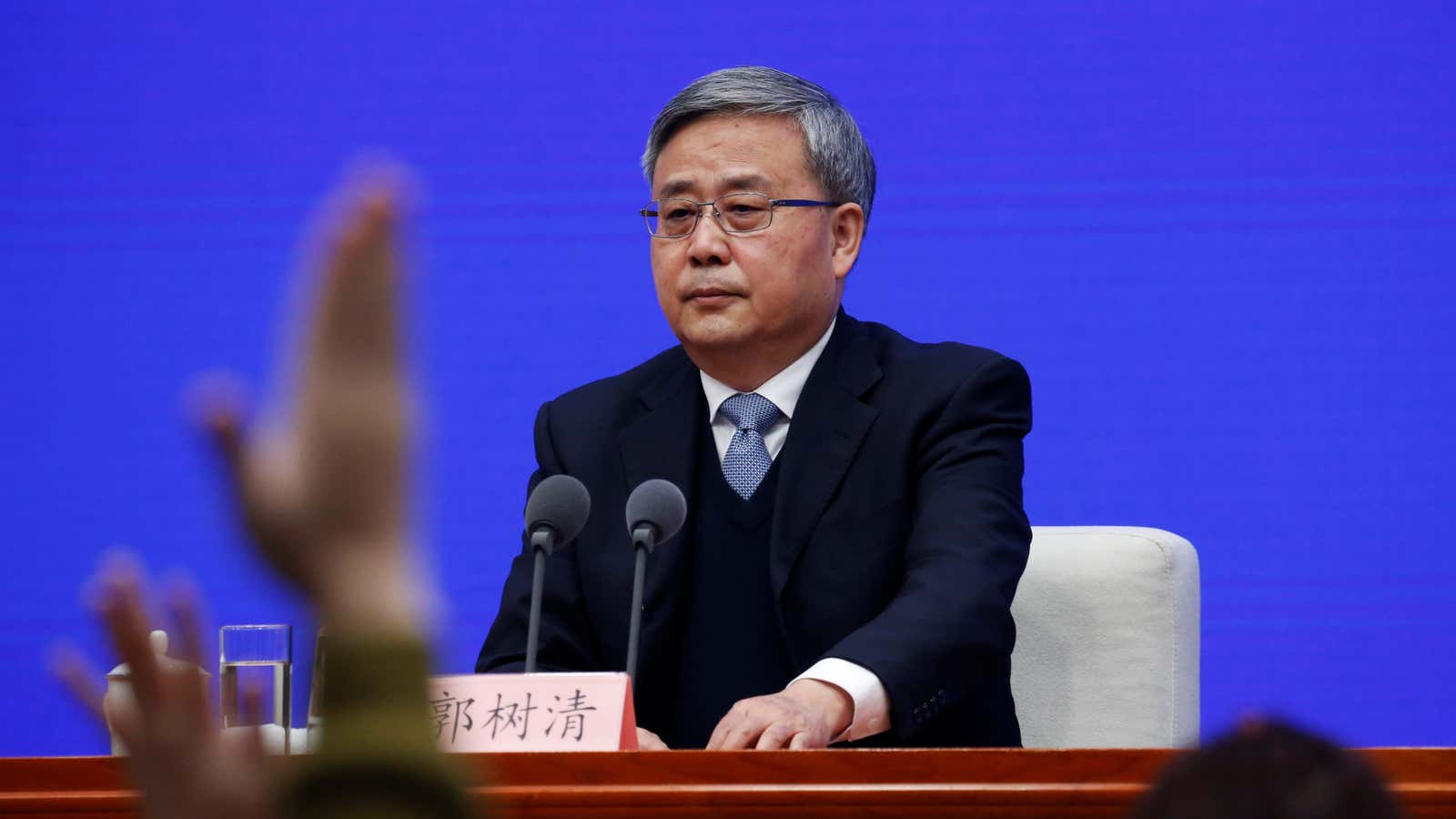China has long expressed its displeasure with what it calls the US’s “financial hegemony” and its corresponding ability to slap sanctions on foreign countries.
Now, as the US and Europe hit Russia with unprecedented sanctions over its invasion of Ukraine, Chinese officials, academics, and experts are grappling with the implications of the unfolding full-scale global economic and financial war.
No to sanctions, yes to economic coercion?
Officially, Beijing has opposed the use of sanctions against Russia, deeming them illegal, and counterproductive.
“As far as financial sanctions are concerned, we do not approve of these, especially the unilaterally launched sanctions because they do not work well and have no legal grounds,” Guo Shuqing, China’s top banking regulator, told a news conference yesterday (March 2). He also played down effects of the sanctions on China’s economy and financial sector.
Meanwhile, the Chinese ambassador to the United Nations said yesterday that “[b]lindly…imposing sanctions and creating division and confrontation will only further complicate the situation, and result in a rapid negative spillover of the crisis.”
Yet China’s opposition to sanctions does not seem to stop it from deploying economic coercion against businesses and countries that anger it. Most recently, China has blocked Lithuanian goods and launched a state-led corporate boycott of multinationals with ties to the European country. That follows an unofficial Chinese boycott of Australian coal that began in late 2020.
Global integration as protection against sanctions
So far, sanctions on Moscow have included exemptions for energy to allow continued exports of oil and gas supplies that power the world’s economies—particularly Europe’s. That Russia’s integration with the global economy is what earns it a small degree of reprieve from sanctions is not lost on observers in China.
Facing the risk of uses of sanctions by the west in the future, “we need to continue to increase our efforts to integrate into the world economic system,” writes Jin Zhong (link in Chinese), a macro investor and columnist for the nationalist news site Guancha. “Only with a deeper and broader integration with other countries’ economies and investments will the so-called economic sanctions have a ‘half-hearted’ effect.”
At the same time as China weaves itself into the global economic fabric, however, it should also become less reliant on the US, writes Song Guoyou, a professor at Fudan University. “The international community has both seen the full extent of the US willingness and ability to use financial sanctions externally and is further concerned about the real national security risks of excessive financial dependence on the US,” he argued (link in Chinese) in a commentary this week.
One area where China has already seen such risk is when it comes to chips, after the US used export controls against Chinese smartphone maker Huawei.
China’s homegrown SWIFT alternative
Some have argued that Russia’s expulsion from SWIFT, the global financial messaging system, will boost China’s own cross-border payment system CIPS. Yet CIPS is currently still dependent on SWIFT.
In light of this potential vulnerability, China should urgently and “vigorously promote the internationalization of the renminbi, focusing especially on the development CIPS and the digital yuan,” wrote Ming Ming, an analyst at Citic Securities.
